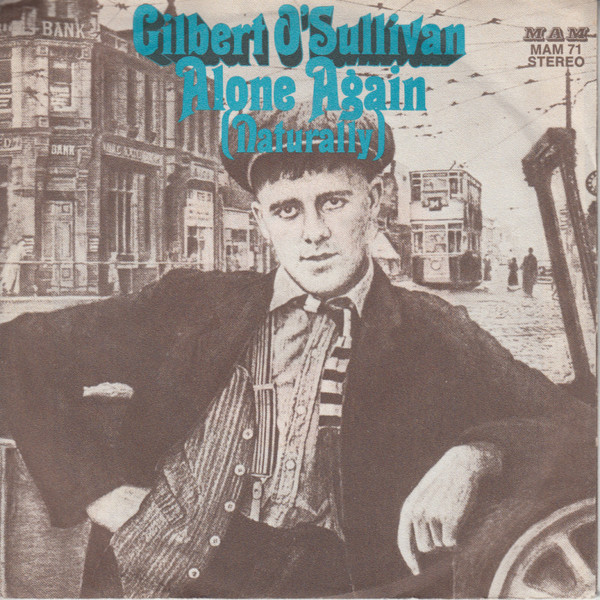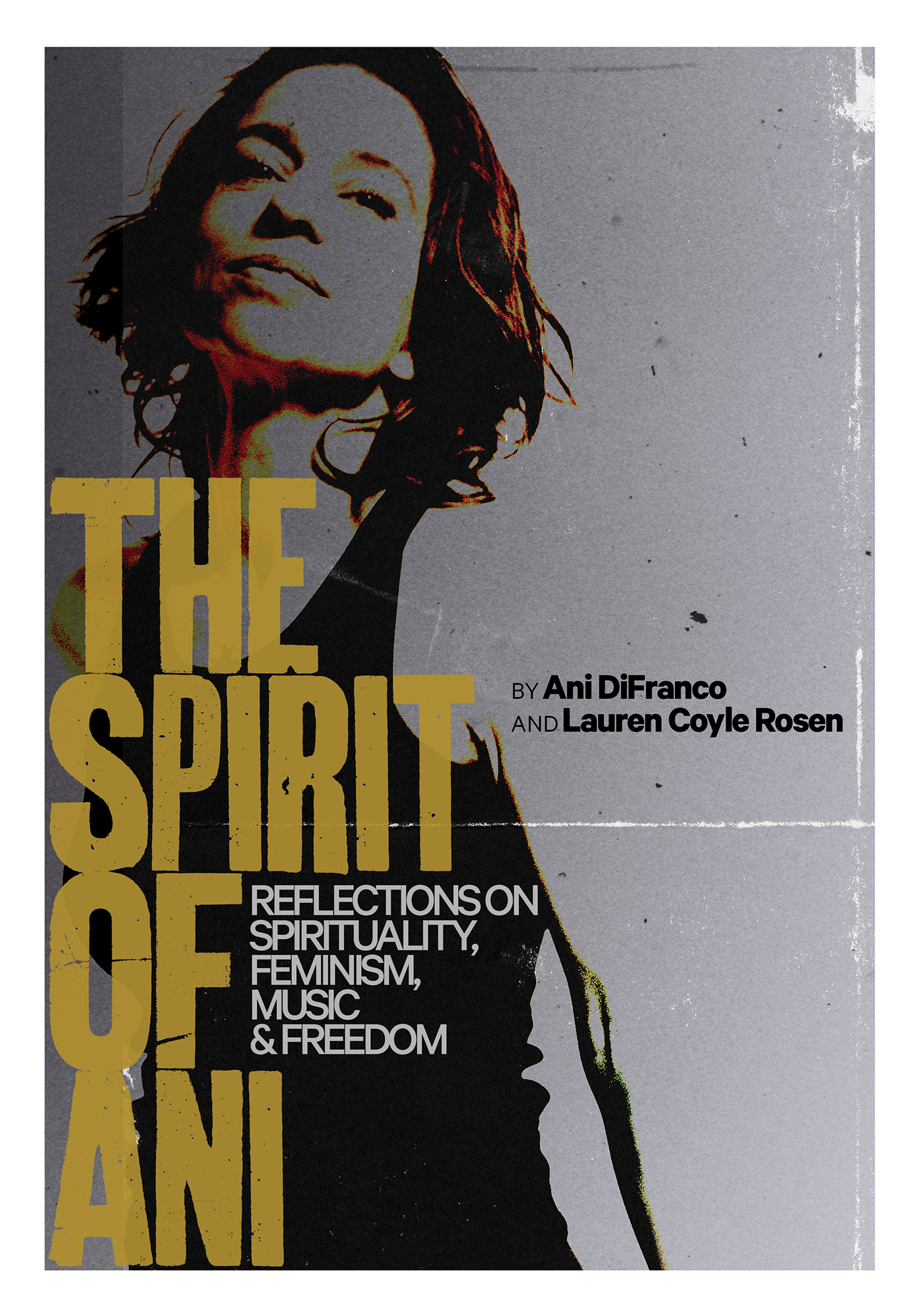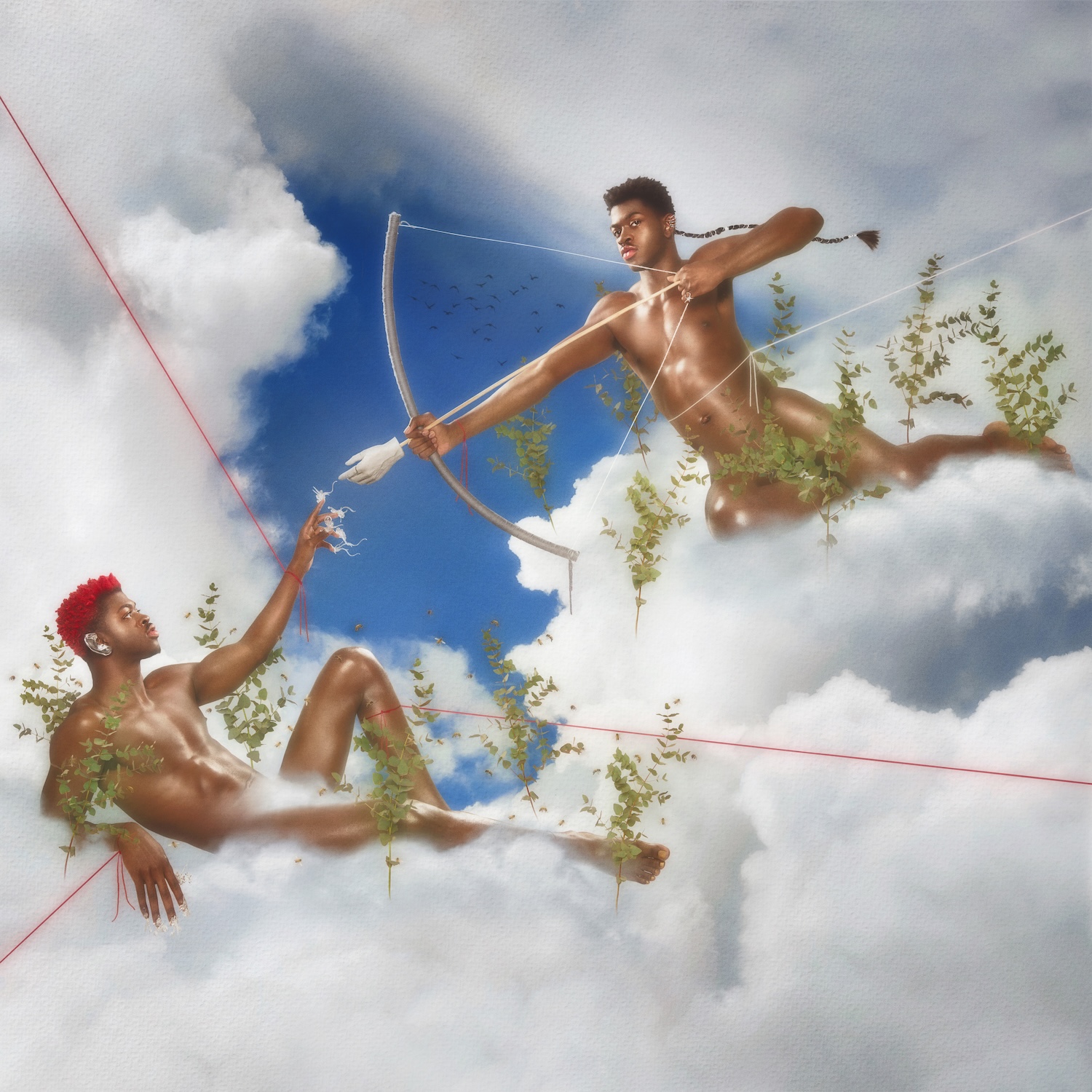In The Number Ones, I'm reviewing every single #1 single in the history of the Billboard Hot 100, starting with the chart's beginning, in 1958, and working my way up into the present.
Gilbert O'Sullivan - "Alone Again (Naturally)"
HIT #1: July 29, 1972
STAYED AT #1: 6 weeks
Was America OK? Clearly, it wasn't. In the US, 1972 was a time of deep divisions and scrambled priorities. Richard Nixon was reelected in a landslide just a few months after his underlings broke into the DNC offices at the Watergate Hotel. A few months before Gilbert O'Sullivan's "Alone Again (Naturally)" hit #1, Nixon ordered the withdrawl of American troops from Vietnam -- a completely necessary move that should've happened years earlier, and a military loss that fucked with our national self-image. Four days before "Alone Again (Naturally)" reached #1, American health officials admitted that, for 40 years, they'd secretly experimented on black men, infecting them with syphilis and leaving them untreated, at Tuskegee University. Three days after the song hit #1, Thomas Eagleton, the Democratic nominee for vice president, left the race, admitting that he'd been hospitalized for depression three times. This was a sick, raw time.
And yet that sickness still only goes so far toward explaining the popularity of "Alone Again (Naturally)." One of the year's most popular songs was a florid pop trifle on which the singer calmly announces that he's about to throw himself off of a tower. Before the song is over, O'Sullivan questions the existence of God, sings about the deaths of his parents, and considers the ways that grief can absolutely destroy people -- all this over music that could've been used to advertise laundry detergent. Weird times.
https://youtube.com/watch?v=8ELnhjGw4Zs
Gilbert O'Sullivan's real name was Raymond O'Sullivan, and he changed it, at his manager's urging, in that late-'60s moment when people were generally trying to out-surreal each other. (It's a completely unfunny play on the names of the theatre composers Gilbert and Sullivan, and O'Sullivan has been living with it for decades.) He was born in Ireland and mostly raised in London, and he started playing music as an art student in the '60s. For a little while, O'Sullivan played drums in Rick's Blues, a band fronted by future Supertramp leader Rick Davies, and O'Sullivan credits Davies with teaching him both drums and piano. (Supertramp's highest-charting single is 1979's "The Logical Song," which peaked at #6. It's a 6.) Eventually, O'Sullivan started writing songs, landed himself a contract with CBS, and scored a couple of UK hits.
O'Sullivan wrote and produced "Alone Again (Naturally)" himself. He's insisted that it wasn't autobiographical. His mother was still alive when the song came out. His father had died when O'Sullivan was 11, and O'Sullivan hadn't known him well. Maybe that's why O'Sullivan doesn't sound even remotely broken when he's singing about being broken. He's singing about heartbreak -- not from lived experience, but from coming up with the saddest, most melodramatic situations that he can imagine.
On the first verse, O'Sullivan imagines himself jilted at the altar, contemplating his future. His lyrics are a bit of a syntactic jumble, and while you're still puzzling out the wording of "I promised myself to treat myself," he's singing about flinging his own body into the void. Then he's singing about his mother's grief at his father's death, and his grief at his mother's death. He's talking about how his recent misfortunes have been "leaving me to doubt all about God and His mercy / For if He really does exist, why did He desert me?" It's a lot.
Musically, though, it's an amiable and low-key amble, all fluttery acoustic guitars and woodwind tootles and soft string-swirls. It's dentist's-office music. And O'Sullivan never reaches out for any big notes. He just plainly presents his absurdly depressing scenarios with a forthright, conversational plainness. For a song so operatically sad, there's almost no feeling to it, and I can't imagine getting swept up in it. Maybe we, as a people, needed to invent goth before we could properly present a musical sentiment this bleak. Or maybe the people of 1972 were just easy marks for a song so downhearted and yet so bland.
GRADE: 3/10
BONUS BEATS: Biz Markie sampled "Alone Again (Naturally)" on his self-produced 1991 album track "Alone Again." O'Sullivan sued Biz, claiming that Biz's label Tommy Boy had tried to clear the sample but that O'Sullivan had refused. O'Sullivan didn't like that Biz was funny; he thought that "Alone Again (Naturally)" was a serious song that shouldn't be used for comic purposes. O'Sullivan won the lawsuit, and the court ruled that rap samples could count as copyright infringement. That case helped end rap's free-for-all sampling era, and Biz's next album was called All Samples Cleared. Here's Biz's "Alone Again":
(Biz Markie's highest-charting song is 1989's "Just A Friend," which peaked at #9. It's a 10.)
BONUS BONUS BEATS: Biz Markie was not the first rap artist to sample "Alone Again (Naturally)." Here's a live recording of a 1981 Cold Crush Brothers routine built on the "Alone Again (Naturally)" melody:
BONUS BONUS BONUS BEATS: Here's a 2017 "Alone Again (Naturally)" cover from the Pet Shop Boys and Elton John, two artists who will appear in this column:






